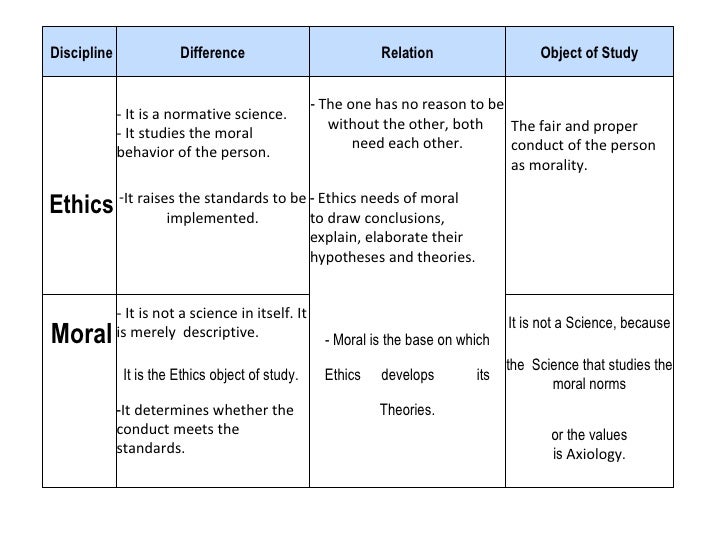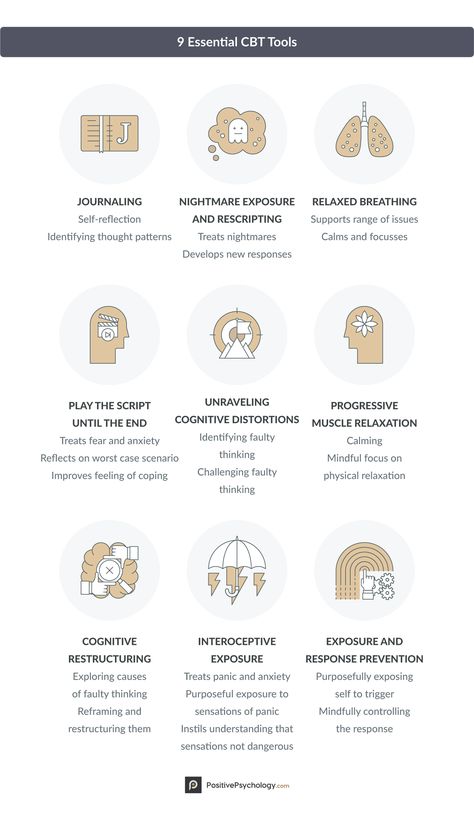Lack time management
The 11 Biggest Symptoms of Poor Time Management
Whether you realize it or not, time management plays a huge role in how successful you are in life. For starters, it can reduce stress, allows you to prioritize what’s most important, and improves your reputation. Time management also helps you make the right decisions, eliminates wasted time, and gives you the freedom to do the things that you truly enjoy in life.
Here’s the thing. Just because you have a full calendar and receive daily reminders doesn’t mean that you’re effectively managing your time. It just means that you’re busy and not necessarily spending your days as productive as they should be.
But, how can you tell that you need to adjust your time management game? Here are 11 symptoms of poor time management to let you know and how you can cure them.
1. Poor punctuality.
Sure. There are times when something out of control, like getting a flat tire, causes us to run late. However, that’s not the same as having the reputation of being that person who is never on-time.
This may not seem like a big deal. But, it actually shows that you’re not respectful of other people’s time. “Essentially, running late is very poor manners,” etiquette expert and founder of The Good Manners Company, Anna Musson, told The Huffington Post Australia.
“There are a multitude of reasons as to why, but the overriding reason is it suggests deep down you think your time is more valuable than others’.” Musson also explains that during “the Victorian times, there were often six-course dinners all perfectly timed according to wine and service.” That meant if someone was late, “it could throw out the whole evening.”
Besides being disrespectful, tardiness also costs money and lowers productivity in the workplace. For example, even if you just ran five-minutes late to a meeting, that means all of the participants are just sitting there waiting for instead of doing more important work.
There are several ways that you can change this behavior. But, Musson suggests that one of the first things to do is to pretend that anything you have scheduled starts 30-minutes earlier.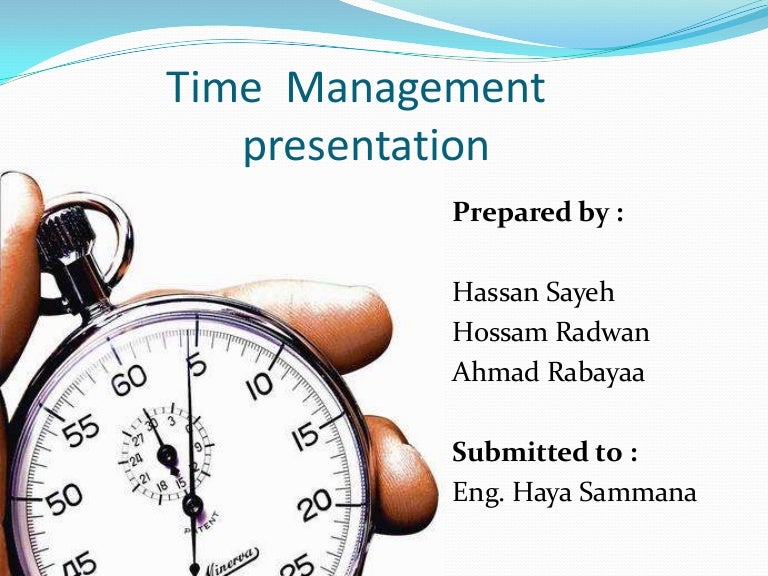 So, if a meeting begins at three P.M., schedule it in your calendar for 2:30.
So, if a meeting begins at three P.M., schedule it in your calendar for 2:30.
2. Constant rushing.
Do you feel like you jumping from one thing to another without being able to catch your breath? If so, that’s another red flag regarding your time management.
Like running late, sometimes this is unavoidable, like if you got caught in a traffic jam on the way to a meeting. However, most of the time it’s because you’re either waiting until the last minute or overextending yourself.
To rectify this, be more realistic with how much you can do in a day — tracking your time for a couple of weeks can help you with this. After that, you should know how much you can get done in a day so that you aren’t planning to do more than you can.
Also, schedule buffers between calendar entries. This means if you have a meeting that ends at 1:30 PM, you would schedule the next one at 2 PM or later so that you aren’t immediately going from one meeting to the next.
3. Decreased quality of work.

You might not realize this as a business owner or leader. But, if it’s been brought to your attention that your work has been sloppy as of late, then that’s another sign to be aware since it shows that you’re rushing just to complete a task.
The only way you’ll become aware of this is to solicit feedback from others. For example, before submitting an article to Entrepreneur, I always have a teammate look through the piece to make sure it’s acceptable. If they notice a pattern of poor writing, I expect them to bring this to my attention. I may have been too busy with other work and write the pieces too quickly. Knowing the team member will let me know if I’m off somewhere, leaves me free to keep my mind clear. Also, I can make sure not to repeat the same errors in the future.
4. Frequently missing deadlines.
I don’t know about you. But, I hate missing deadlines. Personally, I feel that it shows that you are unreliable. And, if that’s the case, then you can be certain that customers and clients will take their business elsewhere to more reliable businesses.
There are actually a number of reasons why this may be the case. But, a lot of the time it’s because you’re either dragging your feet and just have too much on your hands. Again, be real with how much you can get done in a day. Also, learn how to say “no” to time requests if you’re already working at full capacity. You can also learn to outsource better. And, try to build your schedule around when you’re most productive.
5. Inability to set and achieve goals.
Goals help us identify our priorities. They give us direction and motivation. And, most importantly, they give everything we do a purpose.
But, do feel that a majority of what you do lacks a purpose? Or, do you feel that you’ll never be able to achieve the goals that you have set? If so, it may be because you haven’t taken the time to set and achieve goals that are SMART — which is an acronym for Specific, Measurable, Attainable, Realistic and Timely.
6. Procrastination.
I’ve alluded to this a couple of times. But, procrastination is one of the most glaring signs that you have a time management issue.
But, procrastination is one of the most glaring signs that you have a time management issue.
To be fair, some people actually thrive waiting until the last minute to complete important work. In fact, it even feels good to procrastinate. But, it’s definitely something that is not recommended. After all, studies have found that it can lead to anxiety, stress, and depression. If kept up, it can eventually impact your physical health as well.
Kicking your procrastination habit isn’t always easy. But, the first place to start is to figure out why you’re procrastinating. From there, you can find the best way to stop waiting until the last minute. For example, instead of focusing on your most important activity for the day in the afternoon, block out time in the morning for it since this is when we have the most concentration and energy.
7. Easily distracted.
I get it. The workplace is full of distractions. But, if you constantly let them interfere with your work, then expect consequences like running late, rushing, missing deadlines, and procrastination. You can also forget about reaching any of the goals you set as well — whether they’re SMART or not.
You can also forget about reaching any of the goals you set as well — whether they’re SMART or not.
The first step is to identify your biggest distractions. After that, you can eliminate them. For instance, if your smartphone interrupts you every time you receive a notification, then either turn it off or put it on silent.
8. Overextension.
Another symptom of poor time management is overextension. This is where you take on too much work or make too many commitments. For example, if you’re already spending more than 40 hours per week working for the clients that you already have, why would take on even more clients? Or, if next Thursday already has three meetings in your calendar, then you probably don’t have time for a fourth.
Again, be realistic with what you can get done in a day. If you already have a full plate, then don’t add anything else. Instead, schedule it for another time when you do have the availability.
9. Multitasking.
Let’s be honest here. Multitasking does not work. However, when you’re strapped for time, you may try to do the impossible and do more than one thing at a time.
Multitasking does not work. However, when you’re strapped for time, you may try to do the impossible and do more than one thing at a time.
Instead of multitasking, focus on thing at a time. Once that is done, then move on to what’s next. It may not sound like an effective. But, single-tasking is much more effective and time-efficient.
10. Unhealthy habits.
Who has time to sleep, eat healthy, or exercise when there are so many other things that need to get done? Hopefully, we all do. After all, neglecting your health because think that you don’t have time is never a good thing and can result in a wide range of productivity and health concerns.
Make getting 7 to 8 hours of quality sleep a priority. When taking a break between work, go for a walk or do some exercises in your office. And, skip the junk food by preparing your meals for the week on Sunday afternoons.
11. Burnout.
Finally, if you aren’t managing your time the right way, then you’ll eventually get burned out.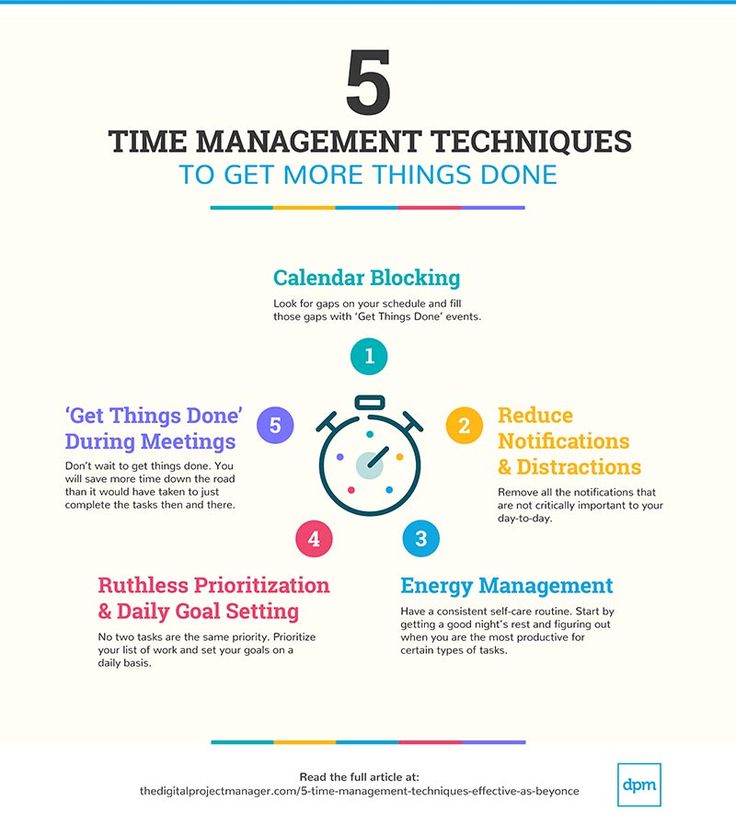 As a consequence, you’re putting your career and health in jeopardy. The reason? You’re working yourself to the bone just to play catch-up. Eventually, you aren’t sleeping, eating garbage, and so stressed that you’re making yourself sick. This can then lead to diminished work, relationship problems, and lowered creativity.
As a consequence, you’re putting your career and health in jeopardy. The reason? You’re working yourself to the bone just to play catch-up. Eventually, you aren’t sleeping, eating garbage, and so stressed that you’re making yourself sick. This can then lead to diminished work, relationship problems, and lowered creativity.
Schedule frequent breaks throughout the workday. And, most importantly, spend time away from work so that you can enjoy your life. That means when you’re spending time with your family during dinner or a weekend excursion you aren’t preoccupied with work, such as responding to emails or phone calls.
Tags: poor time management, time management tips
Tips for Improving Bad Time Management to Boost Productivity and Reduce Stress
Articles
7 Min. Read
March 28, 2019
Time is one of the most valuable assets for small business owners and poor time management can negatively impact a company’s work output and revenues. Good time management skills are crucial if you want to grow your business and increase your earnings. Being better at planning your day, prioritizing work tasks and eliminating distractions can help you put your time management back on track. That way, you can focus on delivering better work for your clients and achieving your professional goals.
Being better at planning your day, prioritizing work tasks and eliminating distractions can help you put your time management back on track. That way, you can focus on delivering better work for your clients and achieving your professional goals.
These topics help you spot the signs of bad time management and provide tips for better managing your time:
What Are the Causes of Poor Time Management?
What Are the Effects of Poor Time Management?
What Are the Causes of Poor Time Management?
Poor time management is usually caused by a failure to plan ahead and evaluate the work that you need to complete. These are the five main causes of poor time management in the workplace:
Poor Planning Skills
It’s important to look at the big picture of what needs to be done and the time available to complete all your work. Poor time management means that you’re not able to see the big picture and plan accordingly. You should take a look at the projects you need to complete for the month, the week and that day.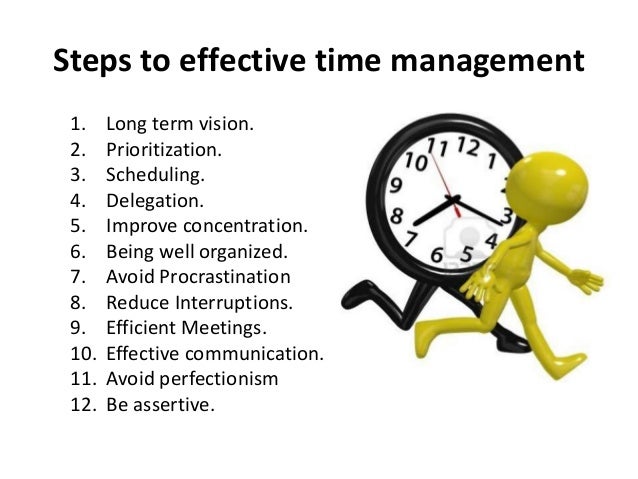 Make sure you set aside enough time to complete all your tasks. With larger projects, it’s helpful to break them down into smaller sections to make the job more manageable, working on it over several days, a few hours at a time.
Make sure you set aside enough time to complete all your tasks. With larger projects, it’s helpful to break them down into smaller sections to make the job more manageable, working on it over several days, a few hours at a time.
Failing to Set Priorities
People who fail to manage their time well often fail to prioritize all the tasks they have ahead of them. Once you plan out your calendar to get a better understanding of all the work you have to do immediately as well as your longer-term projects, it’s important to prioritize all your tasks. A straightforward method for prioritizing your work is to use the Covey time management grid. It helps you rank your tasks by how urgent and important they are, using four quadrants:
- Important: These are tasks that relate to your long-term goals, mission and values.
- Urgent: These are tasks that require immediate attention, but are not necessarily important to your long-term success.

You should work to get any urgent tasks done immediately so they’re out of the way, which creates room for you to schedule large blocks of time for working on important projects.
Not Having Clear Goals
When you have clear goals, it’s easier to decide how to best spend your time in order to achieve them. It’s difficult to prioritize your to-do list if you don’t have goals, because everything will seem equally important. You need goals to measure your work against and to determine what to focus on every day. Without goals, you’ll likely strike the easiest things from your to-do list every day, instead of prioritizing what’s truly important for your long-term success. Write down clear goals for your career and your personal life. Set long-term and short-term goals. Make sure you refer back to your list of goals frequently and always set your priorities based on achieving those goals.
Being Unmotivated
When you aren’t motivated to get your work done or you don’t feel passionate about the tasks in front of you, it’s likely you’ll resort to procrastinating. Procrastination is a big drain on productivity and can eat up the time you have available each day to complete important projects. And that means you’ll be left rushing to meet urgent deadlines and the quality of your work will suffer as a result. Reviewing your long-term goals can help improve your motivation. Reflect on what you plan to achieve in the future and think about how your current work can help you reach those goals. Even if you aren’t excited about a project you’re working on, reflecting on how it can help you achieve your goals may be the motivation you need to better manage your time.
Procrastination is a big drain on productivity and can eat up the time you have available each day to complete important projects. And that means you’ll be left rushing to meet urgent deadlines and the quality of your work will suffer as a result. Reviewing your long-term goals can help improve your motivation. Reflect on what you plan to achieve in the future and think about how your current work can help you reach those goals. Even if you aren’t excited about a project you’re working on, reflecting on how it can help you achieve your goals may be the motivation you need to better manage your time.
Being Bad at Estimating Time
Sometimes, it’s possible for a person to know exactly what they need to do and when it needs to be done, but they have a poor sense of how much time it will take to complete each task. When you underestimate the amount of time needed to finish a project, you’re left in the position of rushing to complete it by the deadline, which can lead to sloppy or inaccurate work.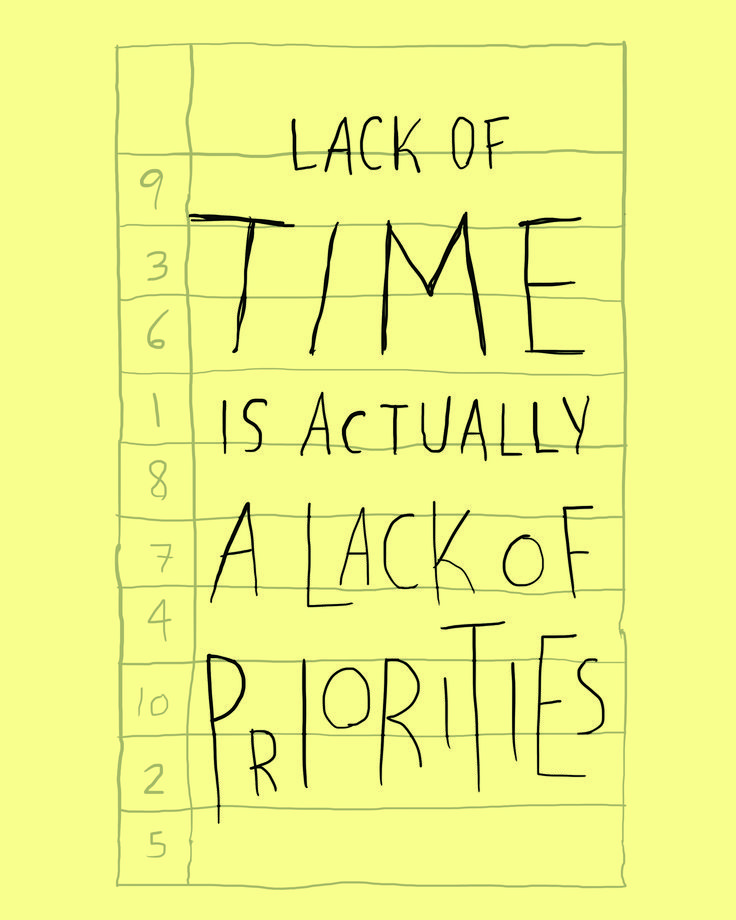 To get better at estimating the time needed to finish your work, it’s important to first understand how you spend your time. Spend a week clocking the amount of time you spend on each task from your to-do list and write it down. You’ll soon get a clearer idea of how much time you need to complete common tasks and you can plan ahead more effectively.
To get better at estimating the time needed to finish your work, it’s important to first understand how you spend your time. Spend a week clocking the amount of time you spend on each task from your to-do list and write it down. You’ll soon get a clearer idea of how much time you need to complete common tasks and you can plan ahead more effectively.
This article will help you learn the importance of good time management, with tips on how to achieve it.
What Are the Effects of Poor Time Management?
Poor time management can affect a person’s business relationships, mental health and their work-life balance. Here are some of the negative effects of poor time management:
Rushing to Complete Tasks
When you manage your time poorly, you may find there’s never enough time in the day to complete everything you need to get done. As a result, you rush to finish projects before their due, which can lead you to make mistakes or produce work that is low quality.
Frequently Being Late
People who are bad at time management don’t just struggle to get their work done, they also have trouble making appointments on time. If you fail to plan ahead or have a poor sense of how long things will take, it’s likely that you’ll frequently be late for meetings and other important events, because you fail to set aside enough time to prepare yourself and travel where you need to be.
Low Productivity
Poor time managers who can’t prioritize work or plan out their day will be less productive than workers with good time management skills. That’s because you’ll likely jump between tasks or be distracted by interruptions that aren’t as important as the project you’re working on. This drains your productivity and slows down your workflow.
Taking on Too Much
People with poor time management skills tend to overextend themselves, accepting projects that they don’t have the time to complete properly, which in turn leaves them overwhelmed. That’s because they don’t have a proper sense of the time they have available or how much time they need to allocate to the tasks they already have on the go.
Missing Deadlines
Poor time management skills often make it difficult or even impossible for you to complete projects on time. That’s because without proper time management, you can’t properly gauge how long a job will take to complete. You’ll be left rushing to finish it, or turning the work in late.
Harming Your Professional Reputation
People with poor time management skills are often unreliable and that can seriously harm their professional reputation. If an employer or client can’t count on you to deliver work on time, produce work that’s of high quality or show up on time for meetings and appointments, your reputation will suffer and you may find it difficult to get new work.
Disatisfaction
The stress and negative feelings associated with poor time management can leave people feeling unsatisfied with their work and unhappy in their jobs. Often, people with bad time management skills will feel burnt out at work and won’t be able to get the motivation needed to perform their job to the best of their ability.
Poor Work-Life Balance
When you properly plan out your day and schedule time for work and personal priorities, you achieve a better work-life balance. But if you waste time procrastinating at work, or if you don’t bother to schedule your time and prioritize tasks, you’ll find that you aren’t able to focus on your personal life and it’s difficult finding time to relax and unwind.
RELATED ARTICLES
Want More Helpful Articles About Running a Business?
Get more great content in your Inbox.
By subscribing, you agree to receive communications from FreshBooks and acknowledge and agree to FreshBook’s Privacy Policy. You can unsubscribe at any time by contacting us at [email protected].
life in White Rabbit mode
Photo: Blue Book
Time management is a dark sorcery that allows you to keep up with everything. Let's figure out how it works, and what is the secret of mastery.
Time management is often defined as a time management technique. Although in fact it is more about managing life. See. We say that time “runs”, “flies”, “rushes”, but for someone, on the contrary, “it stands”. But does it really move, or is it just our perception? In reality, you cannot control time, but you can control yourself. Therefore, the correct definition is time management - organizing and structuring your life.
Principles of time management
To achieve this, follow five basic principles:
- Correct target. Set goals that you can achieve. They must be specific, measurable, relevant and time bound. This is called the SMART method: Specific , Measurable , Attainable , Relevant and Timely .
- Priorities. Arrange the tasks in order of their importance to you. To rank them in order of importance, use the Eisenhower matrix. The red square is what must be done; orange - decide if there is time; green - delegate execution to someone else; blue - score and forget.
- Time frame. Determine how long it will take you to solve a particular problem. It can be displayed in the "approximately half an hour" or "before / after lunch" format. There is also a "from and to" option. For example, 12.00-12.30. But it is for very disciplined and demanding people.
- Breaks. The basis of effective work is rest. Sounds contradictory, but it's true. Only it must be correct and timed. The brain gets tired of doing the same thing without a break: the routine tires it. Therefore, it is best to switch between tasks and take small breaks. Try the Pomodoro Technique. Its essence is that the work is divided into time periods: you do something for 25 minutes, then you rest for 5 minutes, and so on in a circle.
- Self-organization and planning. You can think over your day in your head and forget everything, or write down the main tasks. It is desirable so that they are always in front of your eyes. Even better if you do it in the evening.
Plan tasks not only for the day, but for the month and six months ahead. Set a global goal and move towards it in small steps every day. Let's say you need to pass a term paper in three months. Break the work into pieces: one chapter per month. And then divide it into even smaller tasks: two pages a day. This structuring of the work helps to do it gradually and efficiently. There is no feeling that you are pressed against the wall and the world is about to collapse.
What gives time management?
Correct time management :
- Increases productivity and work efficiency;
- Reduces the level of stress in life;
- Helps you achieve your goals;
- Frees up time for rest.
Time management problems
What can interfere with time management?
- Lack of motivation. Why do a task if it's not interesting or you don't see the point in it? Problems with motivation are a common cause of unsuccessful time management .
It happens that even the planned business is not carried out, because a person puts it off until the last.
- Multitasking. There are few Caesars among us who can effectively solve several cases at once. Yes, and remember how he ended. Do you need it? Seriously, doing many tasks at once reduces focus. There is a risk of doing them poorly or not doing them at all. Focus on one thing.
- Requirements too high. Do not drive yourself into a rigid framework. If you know that the time limit does not motivate, but only presses and adds stress to your life, give up this method. Time management should not be perceived as a punishment, otherwise it will only cause hostility.
- Wrong method. In continuation of the previous paragraph: choose the time management technique that suits you. There are no universal rules for everyone. Some people like the "Pomodoro" method, while others prefer the "90 to 30" (one and a half hours of work + half an hour break).
There is also the principle of nine things, GTD ( Getting Things Done ), Japanese kanban and more. Lots of options. Or you can completely forget about existing techniques and start from your own feelings. It's up to you to decide how you manage your time.
Time management methods
You read about time management, what should you do now? The answer is to find your own method. There are an insane number of them on the Internet, but we will only talk about three in detail. In our opinion, they are the most effective, although much depends on the person himself.
The 90 by 30 method
The essence of the technique is that you work in cycles of one and a half hours with a break of 30 minutes. You need to start the day with the most important task: in the first 90 minutes, focus only on it. Then rest for half an hour, always with a change of activity. Have a snack, go for a run, take a walk - in general, diversify your routine. Then return to work for the next 90 minutes, and so on throughout the day. The key to the success of this technique is the development of a habit. If by your standards 90 minutes is too long for continuous operation, try the alternative - "52 by 17". Or even go back to the "pomatoes": 25 minutes of work and 5 minutes of rest.
Rule 9 cases
It's simple. You should plan no more than nine tasks per day. Moreover, they should also be divided into priorities: 1 important, 3 medium and 5 small. The main thing is to fulfill them all, even household trifles. If you are closer to the principle “first serious - then everything else”, then start with important business number 1. But people who need to “accelerate” should complete small tasks in the morning. Especially if there is a nasty “frog” among them to throw it out in the first place.
Kanban
A system used by Toyota in Japan. It can be used both personally and together with colleagues. In short, you divide all your tasks into: planned, in progress, and completed. The advantage of technology is that everything is visual. Ideally, hang a large board where you will add task stickers. Or use the virtual planning boards. For example, on the Trello website. There you can combine tasks by topic, transfer them, create groups with other people. In general, a good thing for time management at home or at work.
Author : Maria Vaneeva
Soft Skills Self-development self-education time management
Share in
Your score has been saved.
Tell us what we can improve.
Your score has been saved.
Tell us what we can improve.
Thank you for your feedback.
Help with applying abroad with UniPage
UniPage organizes admission to foreign universities, including world famous ones such as Stanford, Sorbonne and Technical University of Munich. We also help:
- choose language courses;
- send the child to a secondary school abroad;
- get a student visa;
- prepare for international exams.
Submit an application and indicate what question you are interested in. Our experts will contact you shortly.
Free consultation More about
servicestips from Worksection – Blog Imena.
A modern person needs to manage to do a lot of things every day: big and small, at home and at work. And if washing dishes at home can be postponed for a sweet “later”, then postponing work tasks leads to rush jobs, missed deadlines, and sometimes to “overwhelmed” projects.
We decided to ask the team of the Ukrainian startup Worksection, which is developing a project in the field of time management, about how time and project management works, and how to avoid common mistakes.
The main time management problems in teamwork
We have created a list of the main problems with managing your time and projects, as well as how to deal with them:
- No priorities in cases and tasks . A lot of different tasks have accumulated and it is not clear which one to take on in the first place.
- "Complex" and very large tasks . It happens that we run into a problem and do not understand how to solve it, who to contact with a question or for advice.
Or the task seems too large and large-scale and it is not clear where to start. Our subconscious simply puts things off. We are distracted by other tasks, and in the meantime, the unsolved problem does not go anywhere. She will "get out" of the project at the most inopportune moment.
- Mess in working papers . It happens that you run a keyword search in the mail to find a document that someone attached to the letter 4 months ago. And you spend looking for the rest of the day. It's boring and inefficient.
- Working atmosphere in which it is impossible to concentrate on one thing, to do it from start to finish. Letters, Skype messages are constantly coming in, they call you and load your brain with other tasks and problems. In such an atmosphere, even a sandwich is not easy to make correctly, and it is impossible to engage in intellectual work at all.
- Procrastination . This fashionable word today describes a simple phenomenon familiar to us from childhood - postponing boring, incomprehensible or unpleasant things.
- Lack of an easy way to control the execution of tasks by the team and subordinates.
- Unclear division of responsibility and tasks in the team.
To solve all these problems, humanity has created a number of disciplines and methodologies: from psychology (which helps to work on motivation) to the development of planning tools for anything (from shopping in a store to a complex, multi-stage project). Let's go through the points.
A few words about the "Eisenhower Matrix"
The most popular and reasonable planning and prioritization system is called "Eisenhower Matrix" and consists in dividing your tasks into 4 categories: "important + urgent", "important + non-urgent" ”, “urgent+not important” and “not important+non-urgent”.
"Important + Urgent" - these are the cases that should be taken from the very beginning. A well-organized person has such a list is minimal.
“Important+non-urgent” are our everyday tasks that just need to be done slowly but surely on time. It is assumed that we have not yet lost time for this, which means we can give the task the necessary attention.
"Not important + urgent" can be difficult to separate from important and urgent. These can be untimely phone calls, help in doing someone else's work, optional and imposed meetings. Such things can take a “mountain” of our invaluable time, so you should think carefully before taking on them.
“Non-important+non-urgent” is everything we do during working hours, instead of actually working: social networking, web surfing, teas and smoke breaks with colleagues. Sometimes you can, but extremely dosed.
It is recommended to divide frighteningly voluminous tasks into stages and subtasks. Then it will become clear what to tackle in the first place, what can be delegated or optimized. And the case itself will no longer seem unbearable. It will become just a set of simple actions in a predetermined order. After that, it becomes morally easier to start working on tasks, because mentally we have already “passed through” the stages of the project and put together a picture of the result in our head.
First, everything that can be stored digitally should be stored in it. And that part of the documentation that is needed on paper can be cataloged (alphabetically, by date, folders, shelves), and the catalog can be stored in the form of a table. This will make it easier to find, for example, the case of Semyon Erokhin, who worked for the company 7 years ago, and whose papers are in one of the seven folders with the letter “E”.
Still, the digital files that you receive should be stored in the appropriate project folders in any of the online document services. For example, Google Docs allows you to search by title and content and track all changes in a document. Some project management systems allow you to link documents directly to a specific project and store them in the system. In the Ukrainian project management system Worksection.com, you can not only link Google Docs documents to projects, but also make changes to them (without leaving the system).
Motivation in teamwork and time management
The office environment, whether we like it or not, involves some communication with colleagues. However, even in a large open space, you can try to keep irritants to a minimum. When you take on a large job, it is worth notifying colleagues that for a certain time you will be unavailable for conversations and discussions. Invite them to ask them any questions that will arise during this period through the mail so that you can answer them without being distracted by other tasks.
In addition, before starting such work, it is worth sorting out distracting trifles, which will take about a minute: letters waiting for your short answer, quick telephone conversations. Then you can, with a clear conscience, turn off Skype and mail for the necessary time and immerse yourself in the task as a whole, without worrying that you forgot to answer the letter that has been waiting in the mail for the third day.
Everyone has things they just don't want to take on. It seems to be clear what to do with them, and there is nothing particularly complicated, but you don’t feel like it - at least howl like a wolf. If it is not possible to delegate such a task, limit the time for its completion in advance (for example, 2 hours) and do not forget to put a reminder before the start. And in especially “hard” cases, assign yourself a “reward” for completing such a task.
The human brain is designed in such a way that when we overcome difficulties and cope with difficult tasks, it secretes the hormone of happiness, but additional encouragement is never superfluous.
If you are a project manager and you see that a subordinate cannot find the mental strength to do something, perhaps the person does not understand the value of doing this task. Try to explain its value to the whole team, the importance of completing it on time (the Gantt chart can help with this, which clearly shows how the entire project depends on each participant), set foreseeable deadlines, do not forget to gently remind and, of course, reward your subordinate when he will be up to the task.
It is useful for each project participant to know at what stage the work on the project is and to find their role in it. For example, a manager can control the timing of work, and subordinates can see the connections between their tasks. And if someone delays the work and the whole project suffers from this, it is easy to understand at what stage the delay occurred and with which of the project participants the problem needs to be worked out.
In the modern world, to control the progress of each of the work in the project, there are convenient systems for collaborating on tasks for every taste. The Worksection example mentioned above is used in a variety of areas - from IT to construction. It allows you to easily set tasks, remind subordinates of the deadlines for their implementation, and also control both small parts of the work and the overall status of the project. All participants know what is happening and what role they play in it.
It's a shame when 2 people do the same job without knowing it. Or if all the work is distributed in the team, except for one small but forgotten detail. This happens when the team does not have a clear distribution of roles within the project, but there is simply a list of tasks in which people take on what they see fit.
Such a democratic atmosphere can still somehow work in small teams of 2-3 people. But as soon as there are more people, the project manager must clearly distribute tasks and designate an area of responsibility for each project participant. It is important to do this in writing, in such a format that team members can refer to this information at any time in case of conflict or misunderstanding. It is most convenient to use one of the many task trackers to distribute tasks. They allow you to distribute tasks, and transfer them from one person to another, and monitor the dynamics of the work.
In conclusion
Briefly summarizing all of the above, we can deduce several principles for the correct organization of work.
Use electronic systems for project management: they allow each team member to show progress on their tasks and evaluate their contribution to the project, and the manager to closely monitor the progress of work.





